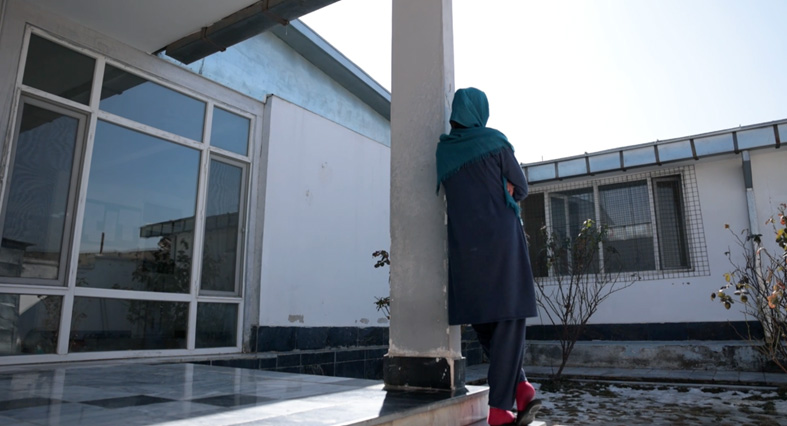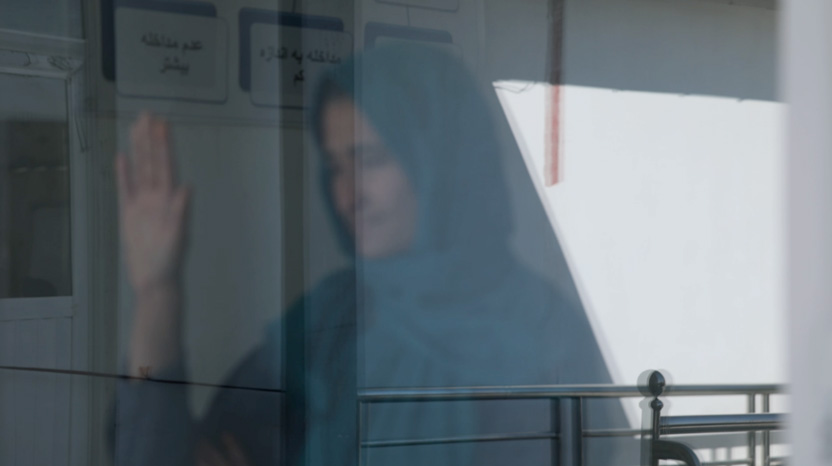 Zainab at the drug addiction treatment centre for women and children, Kabul, Afghanistan. Photo credit: WHO/Z. Safari
Zainab at the drug addiction treatment centre for women and children, Kabul, Afghanistan. Photo credit: WHO/Z. Safari
Zainab*, a 32-year-old mother from Kabul, found herself trapped in a nightmare of substance use that threatened to destroy her family. Her world revolved around the toxic grip of drugs, a legacy her husband passed on to their 4 sons and daughter.
Amid the despair, however, Zainab found a ray of hope in the Kabul 100-bed Females and Children Pilot Drug Addiction Treatment Centre. This is one of several such centres in Afghanistan that are funded under a European Union (EU) project and aim to bring about positive change for families with substance use problems.
Zainab’s voice trembled as she spoke of her difficult journey. “My kids got hooked on drugs because of their dad,” she confided. “They told me that whenever I was out, he made them try drugs.”
Her determination to save her family led Zainab to seek help at the EU-supported drug addiction treatment centre for women and children in Kabul, managed by WHO and the International Medical Corps (IMC). “I realized I was losing everything – my family, my home,” she said. “So, I left my husband, took my kids, and came here for help.”
The road to recovery was not easy. “Every day, I used to take my youngest child and hit the streets to beg for money,” Zainab revealed.
But Zainab began to feel hopeful when someone guided her to Kabul’s drug addiction treatment centre. “Now, I’m happy here, free from drugs, and my children are able to focus on their studies,” she said.
 Zainab at Kabul’s drug addiction treatment centre for women and children. Photo credit: WHO/Z. Safari
Zainab at Kabul’s drug addiction treatment centre for women and children. Photo credit: WHO/Z. Safari
Zainab’s story mirrors the struggles of many families across Afghanistan, where substance use disorders affect nearly 10% of the population. Paving the way to recovery, though, are initiatives like this one and others supported by WHO, the United Nations Office on Drugs and Crime (UNODC) and nongovernmental organizations such as IMC and funded by donors like the EU.
As Zainab begins anew, her story offers hope to many other women like her in Afghanistan.
*Name changed to protect the individual’s identity.


